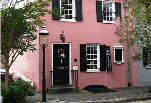
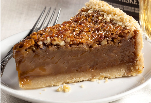
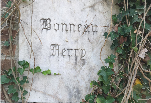
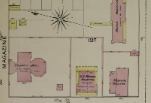
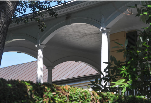

MORE ABOUT CHARLESTON'S HISTORY
I believe that understanding linkages between past and present is essential to understanding our lives today, who we are and why we are the way we are. History gives us a perspective from which we can not only learn from past mistakes, but also emulate those things that are deserving of such. Struggling - often uncomfortably - with history allows us to take a long, reflective view of the complex cultures, traditions, laws and religious thought that have shaped us into the people and society that we are today.
On this blog, I attempt the impossible: to catalog as much as I can of Charleston's history, focusing on its lesser-known aspects and people that haven't made
Things
People
Places
it into the history books - a fact that no less diminishes their lives within the fabric of historic context. I humbly consider myself to be more of a storyteller than an accommplished historian, and I take this opportunity to express my deep appreciation for the scholars who are better primary researchers than I. I will do my best to credit my sources and point the reader to additional sources that provide diverse perspectives and are more expansive than logistics allow me to include here.
This page evolves every day, though in no particular order other than what captures my interest at the moment. Input and suggestions are always welcomed.
Events

